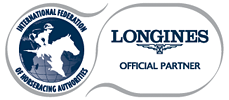On 21 August 2023, International Horse Sports Confederation (IHSC) President Winfried Engelbrecht-Bresges and Vice-President Ingmar De Vos led a senior delegation of the IHSC on a multi-day visit to China to meet with key ministries and equine sports bodies. The IHSC is a non-profit organisation that was created in 2013, when the Fédération Equestre International (FEI) and the International Federation of Horseracing Authorities (IFHA) joined forces to create the first formal vehicle for cooperation between the world’s leading bodies for horse sports. The key mission of the IHSC is to encourage cooperation and the exchange of information on all matters of mutual interest between the IFHA and the FEI, as well as represent the collective interests of the global horse industry with the World Organisation for Animal Health (WOAH) and other international bodies.
As the first major IHSC engagement in China, the visit focused on developing a deeper understanding of how the IHSC can support the development of equine sports in China. The National Equine Industry Development Plan 2020-2025, launched by the Ministry of Agriculture and Rural Affairs and the General Administration of Sport of China, sees the development of an equine industry as an area of focus. The visit provided a platform for the IHSC to share experiences, ideas and expertise across all aspects of the global equine industry chain which may assist the Chinese authorities in the execution of this transformational plan. It also served to further strengthen the cooperation between the IHSC and key stakeholders in China – particularly in the strategic areas of veterinary care, capacity and skill building, quarantine and the movement of horses – to develop a holistic and sustainable equine value chain in China, which presents a unique growth opportunity for the sport.
An important topic explored was the ongoing development of a professional and sustainable veterinary clinical service industry in China, which would facilitate the further advancement of the equine industry in China. Strategies discussed included the establishment of a veterinary clinical training centre, the refinement of the national equine welfare policy, sustainable use of the equestrian venues, coordination of applied equine clinical teaching and the import and production of medication for horses. Additionally, IHSC representatives and Chinese authorities and stakeholders considered the enhancement of professional development opportunities in China through the provision of vocational training and accreditation for veterinarians, technicians, equine sports officials and those working in the horse sports industry.
Another key topic was the establishment of equine industry rules and regulations, through an effective horse identification and registration system, a national system of venue accreditation, national safety standards for equine sports, a national horse safety and welfare policy as well as an effective integrity framework, which are all critically important to the success of China’s future breeding and equine sports industries.
Furthermore, the development of facility and venue biosecurity, an essential component for the future establishment of quarantine facilities and systems to support horse movement and international competition, was also addressed.
“I am honoured to have this opportunity to lead together with Ingmar the inaugural IHSC delegation on this meaningful visit. The IHSC has witnessed with great interest the abundant resources and opportunities for the high-quality development of the equine sports industry in China. This would offer massive benefits to the global equine value chain, and the Confederation is keen to leverage our vast network of experts and knowledge to contribute towards this endeavour,” said IHSC President Winfried Engelbrecht-Bresges.
“This has been a really productive visit for the IHSC, addressing a number of key topics at the heart of the future development of horse sports in China,” said FEI President and IHSC Vice-President Ingmar De Vos.
“Our focus is very much centred around the welfare and wellbeing of horses, and how we can lay the foundations which will allow horse sport to grow sustainably. From the movement of horses within China and abroad to access to trained equine veterinarians and veterinary medicines locally, it is vital that we continue to work together to ensure the education of local resources and expertise.
“I was highly impressed with the depth of knowledge of the Chinese authorities on all these topics, and their commitment to horse sport and the infrastructures required to sustain it. The ball is now in our court, and I want to thank Winfried for his excellent leadership during the visit but also in the follow up for IHSC and the concrete implementation of what has been discussed.”
During the five-day visit, the delegation travelled to Beijing, Hangzhou and Guangzhou, where they met with representatives from various government ministries and equine sports-related organisations as well as toured local horse sports facilities.
On 22 August, the delegation met with the Director of the General Administration of Sport, Mr Gao Zhidan, in Beijing to examine potential areas towards which the IHSC could contribute with regards to further enhancing international equestrian/speed racing events hosted in China as well as developing a high-quality national training curriculum for the training of equestrian and speed racing sports officials.
On 23 August, IHSC delegates met with the Minister of Agriculture and Rural Affairs, Mr Tang Renjian, to discuss ways in which the IHSC could contribute its global expertise to support the development of a modernised, professional and sustainable veterinary clinical service industry in China. The meeting also addressed the importance of the international movement of horses and laid out ways in which the IHSC’s expert network could support the development of standards to facilitate horse movements to and from China.
Additionally, the delegation met with the Chinese Equestrian Association (CEA) to explore ways to support the CEA’s ongoing efforts to enhance rules and regulations for equestrian and speed racing events as well as provide vocational training in both horse sports.
The delegation also met with the China Horse Industry Association (CHIA) to examine how IHSC technical expertise could best be leveraged to further enhance CHIA’s High-Health Performance standards; advance China’s breeding, horse registration and stud book processes; continue to develop quality veterinary clinical services; and enhance standards for the National Equine Welfare Policy.
The delegation then made their way to Hangzhou, where members had a fruitful exchange with Mr Li Yanyi, Vice President of the Hangzhou Asian Games Organising Committee and Vice Governor and member of the Party group of the provincial government, and Mr Yao Gaoyuan, Vice President and Secretary-General of the Hangzhou Asian Games Organising Committee and Mayor of Hangzhou, with regards to supporting talent development, along with raising public awareness and increasing participation in equine sports.
While in Hangzhou, the delegation also visited the Tonglu Equestrian Centre, a state-of-the-art competition facility which has been declared an equine disease-free zone by the WOAH, and the venues and facilities for the upcoming Hangzhou Asian Games. Then they went to Guangzhou to tour The Hong Kong Jockey Club’s Conghua Racecourse – the largest and most comprehensive equine sports facility in Mainland China and an important element of cooperation between Guangdong-Hong Kong and for the development of the Greater Bay Area. These visits helped the delegation to explore ways to leverage international-standard venues and facilities to promote equestrian education.
While in Guangzhou, IHSC representatives had a constructive discussion with Mr Dong Ke, Secretary of the CPC Conghua District Committee on an International Racing Development Centre which would enable the Chinese high-performing horses meeting criteria to compete at international standard and ultimately take part in international group races, facilitate the import and export of competition horses as well as allow pathways for retired racehorses.
The programme concluded with a meeting with Guangdong senior officials. This meeting explored the various ways which the IHSC can contribute its international network and expertise to the ongoing development of equine sports in Guangdong, the most populous province in China.
“This visit has been extremely fruitful and marks a further deepening of the productive relationship that exists between the IHSC and our partners in government, racing and equestrian sport in Mainland China,” said Engelbrecht-Bresges. “In the days ahead, the IHSC will work closely with our partners and stakeholders to further establish the necessary frameworks and project scopes to progress the ideas and initiatives developed over the course of this visit. We look forward to contributing the IHSC’s resources and expertise to support China in taking its equine sports industry to the next level under the strategic direction of the National Equine Industry Development Plan.”
FEI Media Contact:
Olivia Robinson
Director FEI Communications
olivia.robinson@fei.org
+41 78 750 61 35
IFHA Media Contact:
Andrew Chesser
Director
achesser@jockeyclub.com
+1 859 224 2741



